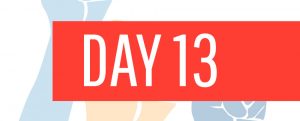Day 10: How Your Race Affects Your Health
You may have heard about the racial wealth gap, but have you heard about the racial health gap? According to the NY Times 1619 Project, “racial health disparities are foundational as democracy itself.”
Socioeconomic status and institutional racism lead to disparities across living conditions, limit access to quality health care, and contribute to chronic stress in the body. These factors lead to shorter life spans and higher likelihood of adverse health outcomes for Black, Indigenous, and people of color. A study by the American Bar Association notes that “racial and ethnic minorities receive lower-quality health care than white people – even when insurance status, income, age and severity of conditions are comparable.”
Some of the inequities that contribute to health disparities by race and ethnicity include:
- Discrimination across systems (healthcare, housing, education, criminal justice, finance)
- Lack of access to affordable and reliable healthcare
- Educational, income, and wealth gaps
- Exposure to higher levels of environmental pollutants (environmental racism)
These long-standing systemic health and social inequities have led to Black and brown communities disproportionately impacted by COVID-19. As of February 12, 2021, nearly 11% of American adults have received at least the first dose of the COVID-19 vaccine — but early data shows a disproportionately small number of them are Black and Hispanic people. “What we’re seeing from the states that are currently reporting data on vaccination distribution by race and ethnicity is a consistent pattern that is really showing a mismatch between who’s receiving the vaccine and who has been hardest hit by the pandemic,”says Samantha Artiga, the director of the Racial Equity and Health Policy Program at the Kaiser Family Foundation.
Artiga emphasizes the importance of a multi-pronged approach to address access barriers – including reliable transportation, internet access, and a flexible schedule – and provide information and education to address people’s questions and concerns about the vaccine. “And I think that we also can learn a lot by listening directly to communities about how and where they want to access the vaccine, where they will feel comfortable accessing the vaccine, and who they want information from about the safety of the vaccine.”
Today’s Challenge
Listen: Hear Dr. Camara Phyllis Jones explain social determinants of health through her analogy of the “cliff of good health” in a video collaboration with the Urban Institute. (5:19)

Watch: Watch this TEDMED video to hear David. R Williams, a public health sociologist, discuss why race and deep-rooted systemic racism have such a profound impact on health. (17:19)

Listen: Listen to this episode of Consider This from NPR – Who’s Getting Vaccinated and Who Isn’t: NPR Analysis Finds Stark Racial Divide. (19:38)
Discussion
What did you learn about the racial health gap? What factors contribute to disparities in health among racial/ethnic and gender groups in the US?
How can training around issues of racism, and anti-racism in organizations, agencies and institutions of all levels (including healthcare) lead to better outcomes for marginalized groups?
More Group Discussion Prompts
- What opened up for you?
- What’s still sticking with you?
- Tell us about an “aha” or “ouch” moment, or a moment that broke you open.
- How are you going to take this information and apply it?
- What action will you commit to?
- What action will you drive forward within your group/organization/community?
- What’s next for you? What’s next for us?




















